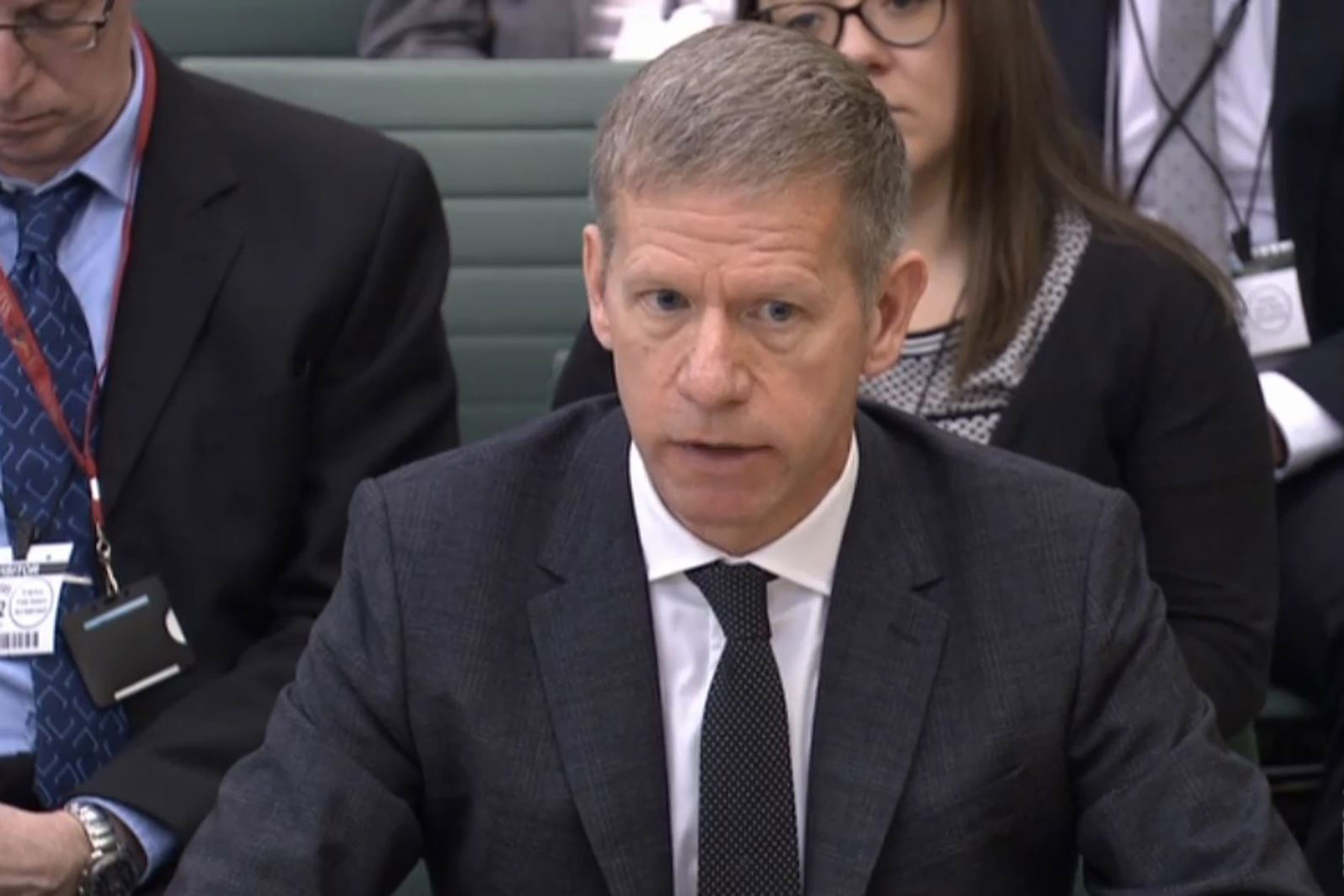Inspectors urge independent review into ‘struggling’ Probation Service
The Chief Inspector of Probation’s annual report found ‘chronic staff shortages’ and ‘unmanageable workloads’.

Your support helps us to tell the story
From reproductive rights to climate change to Big Tech, The Independent is on the ground when the story is developing. Whether it's investigating the financials of Elon Musk's pro-Trump PAC or producing our latest documentary, 'The A Word', which shines a light on the American women fighting for reproductive rights, we know how important it is to parse out the facts from the messaging.
At such a critical moment in US history, we need reporters on the ground. Your donation allows us to keep sending journalists to speak to both sides of the story.
The Independent is trusted by Americans across the entire political spectrum. And unlike many other quality news outlets, we choose not to lock Americans out of our reporting and analysis with paywalls. We believe quality journalism should be available to everyone, paid for by those who can afford it.
Your support makes all the difference.An independent review should be carried out into the “struggling” Probation Service as it faces “chronic staff shortages”, “unmanageable workloads” and is “consistently weak” in protecting the public, inspectors have said.
Only one out of 31 Probation Delivery Units (PDUs) inspected across England and Wales was rated as “good” between June 2021 and July 2023 – with 15 given the lowest rating of “inadequate”, Chief Inspector of Probation Justin Russell’s final annual report said.
Mr Russell, who is due to stand down from the role on September 29, said the “time has come” for an independent review of whether probation should “move back to a more local form of governance and control” – despite the unification of the service in June 2021.
The supervision of people on probation isn’t at the level it should be
In a statement issued after the annual report was published, he said: “The Probation Service is struggling.
“It’s more than two years since the unification of probation back into the public sector as a single national service.
“I said at the time that this was unlikely to be the silver bullet many were hoping for.
“Sadly, this has now proved to be the reality.”
Mr Russell went on: “Yes, there are staffing issues, yes, there was a considerable impact from Covid-19, but, as this annual report shows, we have seen little improvement in our inspections over the past two years.
“The supervision of people on probation isn’t at the level it should be.
I think the time has come for an independent review of whether probation should move back to a more local form of governance and control
“I think the time has come for an independent review of whether probation should move back to a more local form of governance and control.
“This should build on the highly successful lessons of local multi-agency youth justice services – 70% of which we rated as ‘good’ or ‘outstanding’ last year.”
Commenting on the issues the annual report highlighted, Mr Russell said: “In the report we highlight often chronic staffing shortages at every grade, which have led to what staff perceive to be unmanageable workloads and to the poor quality of management oversight of frontline practitioners which was of an acceptable standard in only 28% of cases.
“Major gaps in the services provided to people on probation to meet the underlying needs which may have driven their offending are also identified, as well as ongoing delays in ensuring that court requirements to complete unpaid work or offending behaviour programmes are delivered.”
During his tenure as Chief Inspector of Probation, Mr Russell oversaw damning reports which criticised the service’s handling of the cases of quadruple killer Damien Bendall and sexual predator Jordan McSweeney, who stalked and killed law graduate Zara Aleena.
Both cases uncovered a litany of failings by probation – with the service failing to categorise either killer as high-risk offenders.
My main concern is public protection, which has been a consistently weak area for probation in my four years as chief inspector and has become worse since unification
Addressing the issue of public protection, Mr Russell said: “My main concern is public protection, which has been a consistently weak area for probation in my four years as chief inspector and has become worse since unification.
“The Probation Service must assess and manage cases where there is a risk of serious harm robustly.
“We are still seeing safeguarding inquiries with local children’s services being made in only 55% of the cases where we feel these are necessary, and domestic abuse inquiries with the police in less than half.
“Probation officers have too many cases and too little time to focus on this key area of their work, putting the public potentially at risk as evidenced in our Serious Offence Reviews of Damien Bendall and Jordan McSweeney.
“I am disappointed that my time as chief inspector has not concluded with a more optimistic picture.”
Shadow justice secretary Shabana Mahmood blamed “botched privatisation and renationalisation” of the service for “sky-high” reoffending rates and said staff were “stretched to breaking point”.
In response to the report, a statement issued on behalf of the Probation Service said: “We have made major progress in addressing the concerns raised in this report with the most recent data showing improved performance in key areas such as the proportions of ex-offenders in settled accommodation and attending specialist programmes to change their behaviour.
“The unified Probation Service is delivering greater consistency in supervision and we are already giving local leaders greater decision-making powers to better address the unique issues in their area.”